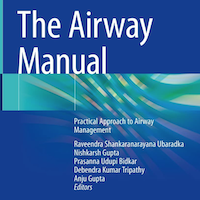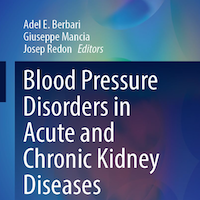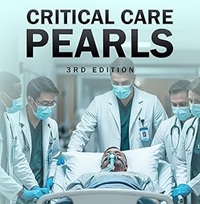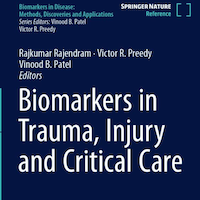Tag: antibiotics
The Great Escape: How ECMO Weaning Shifts Antibiotic Levels
This case study explores the complex pharmacological landscape of treating a 47-year-old patient with severe renal impairment and pneumonia using ceftazidime–avibactam (CAZ-AVI) while on VA-ECMO support. Researchers... read more
Sepsis Management: PIRO and MODS
This book is unique in approaching multiple organ dysfunction syndrome (MODS) from the perspective of its pathophysiological mechanism, and addressing aspects that are overlooked in most of the available literature. Eminent... read more

Protocol Power: Code Sepsis Boosts Bundle Compliance and Cuts Hospital Stays
Study Design: This was a retrospective, single-center study comparing patients with severe sepsis or septic shock before (Pre-Code Sepsis, PC) and after (After-Code Sepsis, AC) the implementation of a structured, team-based... read more
Breadth of Antibiotics Trumps Dose and Duration in Driving ICU Superbugs
In a large prospective cohort study across four ICUs (422 patients enrolled from March 2024 to January 2025), 35.8% of patients acquired carbapenem-resistant Gram-negative bacteria (CR-GNB) during their stay. Using sophisticated... read more
ICU Polypharmacy Alert: 1 in 7 Patients Hit with Major or Contraindicated Drug Interactions
In a prospective observational study of 93 critically ill patients at a tertiary care ICU, researchers identified 123 drug-drug interactions (DDIs), with 15% classified as major and 6% as contraindicated using Lexicomp risk... read more
Gut Feeling vs. Data: SDD Doesn’t Beat Standard Care for Ventilated Patients
This multi-center trial, spanning 26 Intensive Care Units (ICUs) in Australia and Canada and involving over 20,000 critically ill patients on mechanical ventilation, put a long-debated practice, Selective Decontamination... read more
Defending the Vulnerable: Neutropenic Sepsis Outcomes Improve Despite Higher Risk
A decade-long, single-center study in a French ICU examined the characteristics and outcomes of 185 consecutive patients admitted with neutropenic sepsis or septic shock between 2012 and 2022. The analysis revealed a... read more
The Sepsis Chain of Survival: Breaking the Cycle
This framework offers a systematic and adaptable approach to improving outcomes for patients with suspected sepsis. Borrowing from the successful Cardiac Arrest Chain of Survival, the Sepsis Chain emphasizes a seamless series... read more
The Sepsis Tightrope: Tracking Antibiotic Levels to Hit the Sweet Spot in the ICU
This prospective, observational study examined the beta-lactam antibiotic concentrations in the crucial first 48 hours of treatment for patients with community-acquired sepsis in the Intensive Care Unit (ICU). The study... read more
Most ICU Infections Miss the Mark for Classic Fever
The large number of patients being treated for infection without a high fever suggests that many could be ideal candidates for a clinical trial investigating induced hyperthermia (purposely raising body temperature) as a... read more
Lung Ultrasound Speeds Up VAP Diagnosis and Improves ICU Outcomes
This prospective randomized controlled study investigated whether using Lung Ultrasound (LUS) as a primary bedside tool for diagnosing Ventilator-Associated Pneumonia (VAP) could outperform the standard radiological approach... read more
The Antibiotic Balancing Act in ICU: Optimizing Use to Beat Resistance and Save Lives
The continuous fight against antibiotic resistance demands a routine and multidisciplinary strategy for antibiotic optimization in the ICU. Regular review and updating of these practices, based on local data on pathogens... read more
New Sepsis Diagnostic Tool Receives $4.87M Grant to Guide Critical Care
A team of doctors and engineers at Washington University School of Medicine received a $4.87 million grant from the U.S. Department of Defense to create a new, rapid diagnostic device for sepsis. This handheld device will... read more
Long-Term Trends of Penicillin-Nonsusceptible Group B Streptococcus: A 24-Year Retrospective Study
A 24-year study at a single hospital shows a troubling trend: a significant increase in both Group B Streptococcus (GBS) infections and strains resistant to penicillin (PCN-NS GBS). This highlights a growing problem with... read more
Meropenem and Piperacillin/Tazobactam Optimized Dosing Regimens for Critically Ill Patients Receiving RRT
This study provides optimized dosing regimens for meropenem and piperacillin/tazobactam in critically ill patients receiving diverse renal replacement therapy (RRT) prescriptions. Daily dosing is dependent on the target... read more
Inadequate Empirical Antibiotic Therapy in VAP: Risk Factors and Outcomes
Ventilator-associated pneumonia (VAP) caused by MDR pathogens were highly likely to receive inadequate empirical antibiotic therapy. The mortality rate and intubation duration were significantly longer in inadequately treated... read more
Holy Water Not so Holy: Potential Source of Elizabethkingia Pneumonia and Bacteremia in an Immunocompromised Host
This case report highlights that E. anophelis may indeed cause significant infection and should not be considered a contaminant especially in immunosuppressed individuals. The organism originates from water sources and may... read more
Ventilator-associated Pneumonia Pathogenesis: Old and New Mechanisms
Ventilator-associated pneumonia (VAP), defined as a lung infection that occurs in patients after 48 hours on mechanical ventilation, is among the most frequently found nosocomial infections in intensive care units around... read more
Aminoglycosides Impact on Survival Rate and Renal Outcomes in Patients with Urosepsis
The addition of aminoglycosides to beta-lactam therapy in critically ill patients with urosepsis did not significantly improve 30-day survival. Furthermore, aminoglycosides were not associated with worse renal outcomes.... read more
VAP Recurrences Definition: European Experts Consensus
This consensus by European experts proposes four different ventilator-associated pneumonia (VAP) recurrence entities which should facilitate the harmonization of recurrence criteria for clinical practice and future studies. Thirty-six... read more
Mortality in Patients with SA-AKI Using the MIMIC-III Database
In this study, we identified critical factors influencing mortality in patients with Sepsis-Induced Acute Kidney Injury (SA-AKI) using the MIMIC-III database. The primary findings of our research, including advanced age,... read more
VAP in Patients with Increased Intra-abdominal Pressure
Critically ill patients with increased intra-abdominal pressure (IAP) and multidrug-resistant (MDR) ventilator-associated pneumonia (VAP) are considered a challenging patient population in every ICU setting. Patients with... read more









